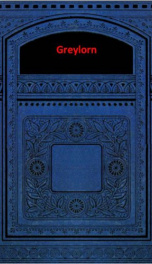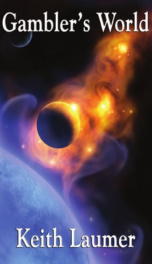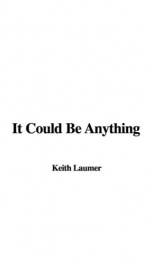Laumer Keith

John Keith Laumer (June 9, 1925(1925-06-09) – January 23, 1993) was an American science fiction author. Prior to becoming a full-time writer, he was an officer in the United States Air Force and a U.S. diplomat. His brother March Laumer was also a writer, known for his adult reinterpretations of the Land of Oz (also mentioned in Keith's The Other Side of Time). Keith Laumer is best known for his Bolo stories and his satirical Retief series. The former chronicles the evolution of super tanks that eventually become self-aware through the constant improvement resulting from centuries of intermittent warfare against various alien races. The latter deals with the adventures of a cynical spacefaring diplomat who constantly has to overcome the red-tape-infused failures of people with names like Ambassador Grossblunder. The Retief stories were greatly influenced by Laumer's earlier career in the United States Foreign Service. In an interview with Paul Walker of Luna Monthly, Laumer states "I had no shortage of iniquitous memories of the Foreign Service." In addition to his Bolo and Reteif stories, Laumer's more serious aventures included the subjects of time travel and alternate world advantures such as found in his "The Other Side Of Time", "A Trace Of Memory", and "Dinosaur Beach. Four of his shorter works received Hugo or Nebula Award nominations ("In the Queue", was nominatied for both) and his novel A Plague of Demons was nominated for the Nebula Award for Best Novel in 1966. During the peak years of 1959–1971, Laumer was a prolific science fiction writer, with his novels tending to follow one of two patterns: In 1971, Laumer suffered a stroke while working on the novel The Ultimax Man. As a result, he was unable to write for a few years. As he explained in an interview with Charles Platt published in The Dream Makers (1987), he refused to accept the doctors' diagnosis. He came up with an alternative explanation and developed an alternative (and very painful) treatment program. Although he was unable to write in the early 1970s, he had a number of books which were in the pipeline at the time of the stroke published during that time. In the mid-1970s, Laumer partially recovered from the stroke and resumed writing. However, the quality of his work suffered and his career declined (Piers Anthony, How Precious Was That While, 2002). In later years, Laumer also reused scenarios and characters from his earlier works to create "new" books, which some critics felt was to their detriment: Alas, Retief to the Rescue doesn't seem so much like a new Retief novel, but a kind of Cuisnart mélange of past books. -- Somtow Sucharitkul (Washington Post, Mar 27, 1983. p. BW11) His Bolo creations were popular enough that other authors have written standalone science-fiction novels about them. Laumer was also a model airplane enthusiast, and published two dozen designs between 1956 and 1962 in the U.S. magazines Air Trails, Model Airplane News and Flying Models, as well as the British Aero Modeler. He published one book on the subject, How to Design and Build Flying Models in 1960. His later designs were mostly gas-powered, free-flight planes, and had a whimsical charm with names to match, like the "Twin Lizzie" and the "Lulla-Bi". His designs are still being revisited, reinvented and built today. Books concerning the Bolo self-aware tanks. Co-author book credits also indicated at Bolo Self-aware Tank. Satirical adventures of Retief, the galactic diplomat. Books set in the Imperium mythos: a continuum of parallel worlds policed by the Imperium, a government based in an alternate Stockholm. In the science fiction novel Worlds of the Imperium, the Imperium is formed in an alternate history where the American Revolution did not occur, and the British Empire and Germany merged into a unified empire in 1900. The protagonist, American diplomat Brion Bayard, is kidnapped by the Imperium because the Brion Bayard in a third parallel Earth is waging war against his abductors. Further adventures follow after Bayard decides to remain in the service of the Imperium. A comic equivalent of the Imperium mythos, in which the hero has the ability to travel to feudal/magical alternate Earths.
do you like this author?
What readers are saying
What do you think? Write your own comment on this book!
write a commentWhat readers are saying
What do you think? Write your own comment on this author!
write a commentBook list

The Yillian Way
Series:
Unknown
Year:
Unknown
Raiting:
1.5/5
The Yillian Way. please visit www.valdebooks.com for a full list of titles
Show more
add to favoritesadd In favorites

Greylorn
Series:
Unknown
Year:
Unknown
Raiting:
2.5/5
In this story Keith Laumer displays the finesse, artistry and imagination of an old pro. Here is one of the tightest, tautest stories of interplanetary adventure. The plot of the book is lively, and the contact scenario interesting. This book is recommended for everyone who likes fast, exciting read.
Show more
add to favoritesadd In favorites

Gambler's World
Series:
Unknown
Year:
Unknown
Raiting:
3/5
In Gambler's World we meet Jamie Retief, the main character, very intelligent and charming who has the next task to save the diplomatic mission. As a result of diplomatic negotiations, a treaty was signed between the planets of Terra and Petreac. However, the inner situation in Terra has changed and there is a chance of revolution there. Jamie Retief is sent to settle stability there and promote further diplomatic contacts. The book written in a perfect style is recommended for all lovers of science fiction.
Show more
add to favoritesadd In favorites
Book list

The Yillian Way
Series:
Unknown
Year:
Unknown
Raiting:
1.5/5
The Yillian Way. please visit www.valdebooks.com for a full list of titles
Show more
add to favoritesadd In favorites

Greylorn
Series:
Unknown
Year:
Unknown
Raiting:
2.5/5
In this story Keith Laumer displays the finesse, artistry and imagination of an old pro. Here is one of the tightest, tautest stories of interplanetary adventure. The plot of the book is lively, and the contact scenario interesting. This book is recommended for everyone who likes fast, exciting read.
Show more
add to favoritesadd In favorites

Gambler's World
Series:
Unknown
Year:
Unknown
Raiting:
3/5
In Gambler's World we meet Jamie Retief, the main character, very intelligent and charming who has the next task to save the diplomatic mission. As a result of diplomatic negotiations, a treaty was signed between the planets of Terra and Petreac. However, the inner situation in Terra has changed and there is a chance of revolution there. Jamie Retief is sent to settle stability there and promote further diplomatic contacts. The book written in a perfect style is recommended for all lovers of science fiction.
Show more
add to favoritesadd In favorites

It Could Be Anything
Series:
Unknown
Year:
Unknown
Raiting:
1.5/5
"Keith Laumer was well-known for his science fiction action and adventure stories. "It Could Be Anything" shows us a different side of his talent. In this original, thought-provoking story he explores and redefines the meaning of meaning." --This text refers to an alternate Paperback edition.
Show more
add to favoritesadd In favorites
What readers are saying
What do you think? Write your own comment on this author!
write a commentif you like Laumer Keith try:
readers also enjoyed
What readers are saying
What do you think? Write your own comment on this author!
write a commentGenre
if you like Laumer Keith try:
readers also enjoyed
Do you want to read a book that interests you? It’s EASY!
Create an account and send a request for reading to other users on the Webpage of the book!

